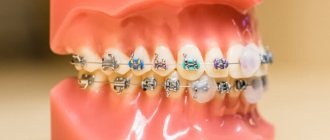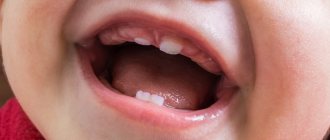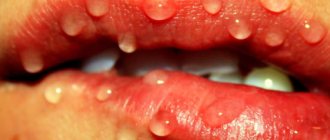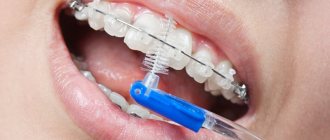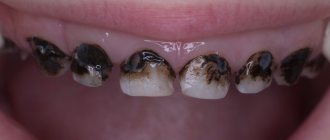A friend of mine turns pale when people start talking about dental treatment in front of her, and she is afraid of dentists like hell. The result of this fear is very sad - she had several teeth removed, including the front one. They could have been saved if the friend had gone to the doctor as soon as she felt the pain. But she didn’t take the risk, remembering her childhood experience - then the whole department had to keep her in order to cure caries. The tooth was put in order, but the fear of the dentist remained for the rest of my life. Indeed, the first appointment will determine the child’s attitude towards “dental” procedures, perhaps for life. How to make it go smoothly and leave only bright memories?
Our experts
Daria Prikhodko (Moscow),
psychologist, gestalt consultant
Marina Podolina (Togliatti),
pediatric dentist at the clinic "Children's and Adult Central Dentistry"
Elena Zaitseva (Petrozavodsk),
pediatric reception specialist at the Petrodent dental clinic
To the dentist - per month
Caries can appear in babies who have not even learned to walk, notes pediatric reception specialist Elena Zaitseva. The expert explains this feature by the vulnerability of baby teeth: “They differ in many ways from permanent teeth, because their enamel is weak and contains a small amount of minerals and trace elements. In addition, there are no “immune zones” in baby teeth, which means caries can appear even on their smoothest surface. The central teeth on the child’s upper jaw are highly susceptible to various kinds of misfortunes.” It is for this reason that the child should be shown to the doctor not after the appearance of the first tooth, that is, at six months, but already four weeks after birth, says pediatric dentist Marina Podolina.
“The doctor should look at the condition of the mouth, tongue, and the attachment of the frenulum of the upper and lower lips. Then the child needs to be taken to the dentist every six months for a preventive examination. It is unlikely that such early visits to the dentist will help the baby adapt to medical procedures in the future. But it will be possible to track the emergence of possible problems at an early stage of development,” explains the specialist.
Children's reception specialist Elena Zaitseva notes: many parents believe that baby teeth need not be treated (“they will fall out anyway”), which only aggravates the problem. “Baby teeth need to be treated. After all, they, like permanent ones, have roots; in the cavity of each there is a neurovascular bundle. And the consequences of untimely treatment or non-treatment of baby teeth can be disastrous - even removal. It is better not to let this happen, since early “getting rid of” a baby tooth can have a negative impact on the development of the maxillofacial apparatus. The body loses its original “program” for changing teeth, after which this process becomes chaotic and unpredictable. Then sooner or later the child will have to be taken to an orthodontist,” says the expert. The specialist explains: if you don’t pay attention to the condition of your baby teeth, you can say goodbye to your permanent teeth in advance. After all, the “carious relay race” is easily passed on to them, despite the fact that the baby’s teeth are in their infancy.
Tip Four: Don’t Rely on Your Experience When Examining Children’s Teeth
Of course, attentive parents examine their children's oral cavity from time to time. But if you are not an expert or at least an experienced parent, then do not rely on your own opinion. For example, most people associate caries with dark spots or even “holes” in the teeth. Alas, this is often not caries, but pulpitis. In addition, baby teeth are less strong than permanent teeth, and destruction processes in them develop faster.
In the initial stages, caries can manifest itself in a change in the color of the tooth, which may not cause you any concern. White and yellow spots are already a reason to urgently go to the pediatric dentist - you can still fix everything quickly and painlessly. And you certainly don’t have to wait until your baby has a toothache.
Make friends with fear
A child needs to visit the dentist for the first time to prevent caries, and not for dental treatment, says psychologist Daria Prikhodko. But even in this case, parents will still have to prepare the baby for this event - this should be done several days before the reception. The expert notes: it is completely impossible to overcome a child’s anxiety before going to the doctor, because fear of the unknown is a protective reaction of the body associated with the instinct of self-preservation.
“Before visiting a doctor, parents need to tell their child about the work of the dentist and the process of dental treatment, because he does not know what will happen to him in the office, so he will fantasize about this topic. Anxiety can also be aggravated by the excitement of the parents themselves: the baby reads the mother’s emotional state on a subconscious level. Forget about the soothing phrase “Just don’t be afraid of anything” - it betrays the parents’ anxiety. The child concludes: if mom is worried, then something dangerous is coming,” says Daria Prikhodko.
How to overcome the fear of going to the dentist for the first time?
- Let's play doctor To prepare your baby, start from afar: play doctor with him. First, mom or dad will have to transform into a dentist. The “toy” procedure should be close to the real one, Daria Prikhodko is sure. Meet the “patient” at the door, escort him to the chair, lay out the “devices” - preferably so that they vaguely resemble the real thing. During the “examination”, ask him to rinse his mouth, “turn on” the drill. After the procedure, be sure to thank the “patient” and then switch roles. “Role play is a great way to cope with anxiety. Then, at the appointment, the baby will watch with interest the actions of the real doctor, which will distract him from painful sensations. It is also important to draw the child’s attention to the positive aspects of dental prevention and treatment: tell him that dentists help children’s teeth be healthy and beautiful,” says the expert.
- “Bad” word Pediatric dentist Marina Podolina, in turn, advises parents to exclude the word “hurt” from their vocabulary: “You shouldn’t tell your baby that it won’t hurt, no matter how much you want to calm him down. During the appointment, I don’t use this word at all, replacing it with the phrases “Is everything okay?”, “What’s bothering you?”
- Be healthy Marina Podolina says: before visiting the dentist, the child should be healthy, in a good mood and well-rested. If these requirements are met, it does not matter whether the appointment is made in the morning or in the evening.
- A gift from the tooth fairy “You can promise a child a small gift for good behavior at the doctor, so that the baby has an incentive. Before going to the clinic, remind him where you are going to go, tell him that the dentist wants to clean his teeth or count them - is everything in place,” says Marina Podolina.
How to prepare your child for a visit to the dentist.
This could be a problem. In the statistics of English-language Google queries, the question “how to persuade a child to go to the dentist” is in second place - right after “how to persuade a child to go to school” and before “how to persuade a child to go to bed.” In Russia, the school still has significant authority, and the need to go there is not discussed in most families. It’s more difficult with pediatric dentistry: since ancient times, there has been a false idea that dentistry is scary and painful. And it remains with us, with our parents: the children no longer saw Soviet drills. But a child may be afraid of the dentist not only because he has heard enough horror stories about dentists from folklore. Visiting an unfamiliar place is stressful in itself, plus you have to sit in a chair without moving, keep your mouth open for a long time, there are strangers wearing masks around... There are enough reasons to be afraid. Fortunately, there are effective recommendations from experts on how to work with these fears.
1. The sooner a child goes to the dentist for the first time, the better.
It is recommended to visit the dentist for the first time when the child reaches 1 year of age, and the orthodontist at the age of 2 years. Then, at an older age, there will be nothing unusual or unusual for a child in a visit to the dentist. Children, as a rule, are not afraid to go to the pediatrician because they see him often. The logic is the same here. Plus, the sooner you start, the sooner you can identify potential problems and treatment will be easier. Perhaps preventive measures will generally be sufficient.
2. Less details.
Your story about your upcoming visit to the dentist should be simple. A large number of details cause anxiety in the child. Avoid overly complex explanations. “The doctor should look at your smile and count all your teeth” - this is the normal formulation. Given the necessary general positive attitude, psychologists do not recommend giving a child false hope. If you say in advance that everything will be fine but eventually need treatment, your child may feel deceived and their trust in both you and the doctor will suffer. So, if it comes to medical manipulation, and you know about it, you need to inform the child about this in advance in terms that he understands: instead of caries, talk, for example, about sugar spots on the teeth that the doctor should clean.
3. “Replay” the visit to the dentist.
If your child is at the age of role-playing - that is, he is from 2 to 7 years old - it will be useful to play with him in advance at the doctor's visit. There are options here: the child may want to be a patient or a doctor, or you will treat a doll or toy together. The doctor meets the patient, sits him in a chair, puts on a bib, offers to rinse his mouth, counts all the teeth with the patient - top and bottom, asks how the patient brushes his teeth - in general, everything is the same as during a real visit. Be attentive to your child: if he has any specific fears, this will most likely manifest itself in the game. But the easiest way to dispel his fears is in a playful way.
4. Go with your child to see the clinic.
If the dentistry is located close to home, you can, passing by while walking, invite your child to go to the children's dental center and see what's inside, without having the child examined by a doctor. It is even better if you visit the dentist yourself before this, without your child, to make sure that the clinic has a comfortable and friendly atmosphere. Then you will be sure that you are not lying to your child, assuring that inside is interesting and not scary. If a child sees friendly people, toys, a TV with cartoons, interesting posters, and other children in dentistry and sees with his own eyes that dentistry is not a torture chamber, it will be much easier to convince him to meet the doctor next time.
5. Talk about why healthy teeth are important.
If the child has already grown out of role-playing games, for example, he is studying in elementary school, you can convey to him the idea of the benefits of healthy teeth. Just not in a lecture format and without moralizing like “you don’t want to brush your teeth and you’ll get sick”! It is better to make the discussion educational. For example: “What do you think your teeth are made of?”, “Why do you need to brush them? Animals don’t brush their teeth,” “what does toothpaste consist of?” and so on. (Prepare your answers and interesting facts in advance.) Well, personal example, of course, is important. If you brush your teeth poorly and don’t go to the dentist, the effect of any educational activity will be nullified.
6. Dress your child comfortably and take with you what he likes.
The reason for the dentist’s whims may not be fear of treatment, but banal everyday discomfort. Therefore, he should like his clothes and be comfortable in them. He shouldn't be hungry. (It is better to check with the dentist in advance whether it is possible to feed the child before the visit. In most cases, it is possible.) If the child is attached to some kind of toy, doll, book, or mini-game console, it is better to take it with you. Dissatisfaction with the lack of a favorite thing can outweigh the interest in the toys that are available in the dentistry. In addition, they may already be occupied with other children, and yours will have nothing to do while waiting for the appointment.
7. Don't leave him alone.
This seems obvious, but it happens that parents decide that their child is already quite independent and wait for him in the corridor. You shouldn’t do this (unless your child is graduating from school this year). He will feel calmer in your presence. If the child is very afraid of pain and is prone to panic, you can agree on a stop signal. For example, if the child raises his right arm while sitting in the chair, you immediately ask the dentist to stop and take a break so that the child can rest a little, you could hold his hand or give him a toy.
Here’s what you shouldn’t do so as not to aggravate your child’s fears about dental treatment:
1. Take your child with you when you go to the dentist yourself.
Sometimes parents believe that the best example is to lead by example and demonstrate how they donate blood or treat teeth. The idea is unsuccessful. Firstly, at the dentist you will not be able to communicate with the child - your mouth will be open. The child may become bored, or disturb the staff, or run out altogether, and you will have to end the visit. Secondly, the style of communication with an adult patient differs from pediatric dentistry: the child will not see cartoons and toys, but will see boring people armed with lamps and tools and wearing masks. Thirdly, if you yourself don’t really like treating your teeth, the child will immediately “believe” this, and if you even somehow express pain or discomfort, it’s a big deal.
2. Talk about pain and injections and prepare to feel sorry for the child.
There is no need to prepare your child in advance for something that may not happen. Yes, exactly: it may not hurt him. He may not need anesthesia. When a child begins to walk and falls often, it happens that he first looks at his parents to decide whether to cry or not. And if they have frightened faces, if they rush to his aid, he exactly matches their expectations - he starts yelling. If the parents are calm, then nothing bad happened, we get up and move on. It’s the same here: first of all, set yourself in a calm, positive mood. And in most cases, the child will adapt to you.
3. Bribe your child with gifts for going to the dentist.
It's hard to resist.
But if you start promising your child something in advance in exchange for a visit to the dentist, he will only strengthen the idea that something terrible and painful awaits him, otherwise you would not be so fussed about. And since this cannot be avoided, he will bargain for himself the maximum possible, rest assured. It’s another matter if the child behaved well during a visit to the clinic, and you decided to reward him for this. Once again: for good behavior. Just don't buy your child sweets or carbonated drinks as a reward. Firstly, all your talk about the dangers of sweets for teeth in this case will be perceived as hypocrisy. Secondly, you may have to return to the dentist earlier than planned. MAKE AN APPOINTMENT PRICES
Do you have contact?
So, the child and parents are mentally prepared for treatment, it’s time to decide on the choice of a clinic. Children's reception specialist Elena Zaitseva advises relying on reviews from friends and acquaintances, but choosing with your heart. “You can find your own dentist, to whom the child will be happy to go, in both private and municipal clinics,” she notes. But, according to the specialist, private clinics are especially suitable for the first time: “Firstly, you can choose a time convenient for visiting; secondly, it is believed that the staff here are more polite and, as a rule, there are play areas for children. Although some municipal clinics have already begun to install such sites. Thirdly, the doctor will be able to devote enough time to the child during the meeting - municipal clinics, unfortunately, are deprived of this,” says Elena Zaitseva.
To ensure a tear-free visit to the dentist, psychologist Daria Prikhodko advises introducing the child to the specialist in advance - then the parents will have the opportunity to understand whether they will get along. According to the expert, the age and gender of the doctor are unimportant in this situation; the main point is that the child should feel comfortable in the company of the dentist: “Also pay attention to how ready the specialist himself is to cope with the discomfort that interferes with his direct work with the child if the child tends to express emotions brightly and “loudly,” says Daria Prikhodko.
Let's kick out the worm
Dentist Marina Podolina advises one of the parents to be sure to accompany the child during the first appointment with the dentist: “It is ideal if the one who spends the most time at home with the child goes to the doctor with the child. The baby should feel the support of a loved one, since he is in an unfamiliar place and surrounded by strangers. Let him take his favorite toy with him to the dental office - it will help him distract himself.” According to Marina Podolina, the dentist himself should do everything to ensure that the baby asks for an appointment. The specialist believes that treatment should resemble a game. “The reception should begin with an introduction to the baby, followed by a short excursion with a story about magic instruments. I show them to the patient, let them hold them in their hands, roll them on the chair, and tell a story about the tooth fairy who lives in my office. I turn on cartoons and only then start working,” says the expert. According to the dentist, game moments should be present in everything. Therefore, Marina Podolina, according to her, does not tell the child that she will drill a tooth, but explains that she will “drive the worm out of the tooth” and “sweep the mouth with buzzers.”
When should you take your child to the dentist?
It is best if the first visit to the doctor is an introductory appointment. Its goal should be prevention.
If your baby is 1 year old, then you can tell him that he is now old enough to meet with a “dentist” doctor, who will simply check whether his teeth are growing correctly. This is the purpose of the first visit to the dentist; he evaluates the condition of the teeth, their growth and development, as well as oral hygiene. You should not put off meeting with the dentist until later in life. After all, an undetected bite problem in time can lead to many problems in adulthood.
“Take three, frame two...”
During an appointment with the dentist, the parent accompanying the baby is given a supporting role. As a rule, he sits next to the child at the dental chair - while holding the child’s hand. Such contact allows the baby to feel at home. However, the child may be scared or simply capricious. In this case, you need to calm him down, that is, distract him from the treatment process. “In such situations, I ask the child a lot of questions: about kindergarten, hobbies, friends, favorite cartoons. And the child instantly forgets that he is at the doctor’s and begins a dialogue,” says Marina Podolina.
According to her, after such a trick, the dentist can begin treatment again. And interrupt it after a few minutes to “talk” the child again. “You shouldn’t stop taking it after the first failure, because the child will understand that it’s enough to cry for the treatment to stop, and next time he will repeat this “trick.” However, if after several attempts it is not possible to establish contact with the baby, you should stop any interventions. It’s better to forget about treatment and just play with your child in the office. You can go to the dentist again in a week,” the expert advises.
You can return to the same dentist a second time, she believes, even if the child had a tantrum at the first appointment. It is worth changing the specialist if he was rude and inattentive to the baby, that is, he crossed the line when treatment is carried out by force.
Tip #4.
The sooner you start caring for your child’s teeth, teach him to brush them twice a day, and monitor the amount of sweets in his diet, the later his experience of dental treatment will be. When a mother at an appointment with her three-year-old son says that she didn’t even notice how her teeth had deteriorated, and the doctor understands that during a daily examination the mother could have noticed the onset of caries a year ago, who is to blame? If you yourself do not care about your child’s health, citing the fact that he himself does not want to brush his teeth, that he categorically does not like it and that he will never refuse sweet water before bed, then you just have to shrug your shoulders in response. Therefore, dear mothers, do not be lazy and take care of your child’s teeth.
We present the courage candy
If a child has visited the dentist and is frightened, try to “share” this fear into two, advises psychologist Daria Prikhodko. Don’t laugh at your child and don’t use examples of peers who boldly cross the threshold of a doctor’s office. “Be attentive to your child, first of all ask the doctor what scared him. Then invite him to draw his fear. Don’t judge the drawing, but be sincerely interested in: what is depicted on the paper, what the characters are doing, what is the worst thing in this picture for the baby,” advises Daria Prikhodko.
According to the expert, recognizing the fact that the baby was really scared will help a child survive a frightening experience: “Yes, it looks like you were really scared.” Then he will be able to share his feelings with the parent - the intensity of the experience will decrease. “Then transform the “scary” drawing into a positive or funny one. Invite your child to change the plot so that the boy or girl in the picture is not scared. It may be necessary to add a protector who protects against pain, or the doctor shown in the picture will give the patient a courage candy. Any story that helps a child cope with difficulties will do,” notes the psychologist.
If the child doesn’t like any of the options, you can invite him to tear the drawing. “Tell me that along with the destruction of the “scary drawing”, the fear of dental treatment also goes away. This art therapy technique can be repeated several times if the child continues to be afraid. The parent can also take on the role of the “fearful patient.” Let the child-turned-kind-dentist try to calm him down. Afterwards, you can switch roles and repeat all the “calming” actions of the baby,” says Daria Prikhodko. If parents feel that a change of dentist is still necessary, then it would be ethical to warn the new doctor about the problem. But under no circumstances should you panic - only then will your baby become calm and confident.
Tip #9
If your baby suffers from increased motor activity, frequent mood swings, is capricious and overly emotional, if he has increased anxiety and extreme fear of dental treatment, then you should think about using a nitrogen-oxygen mixture to calm the little patient. At the beginning of the treatment, the child breathes “candy” air through the mask for several minutes, calms down, relaxes, and remains conscious during the entire treatment, which is important for most parents. For the last 5 minutes of treatment, the child breathes pure oxygen, after which the remnants of the sedative mixture are completely cleared from the lungs. You can select a clinic in advance where this type of pain relief is used and discuss all the nuances in consultation directly with the treating doctor.
